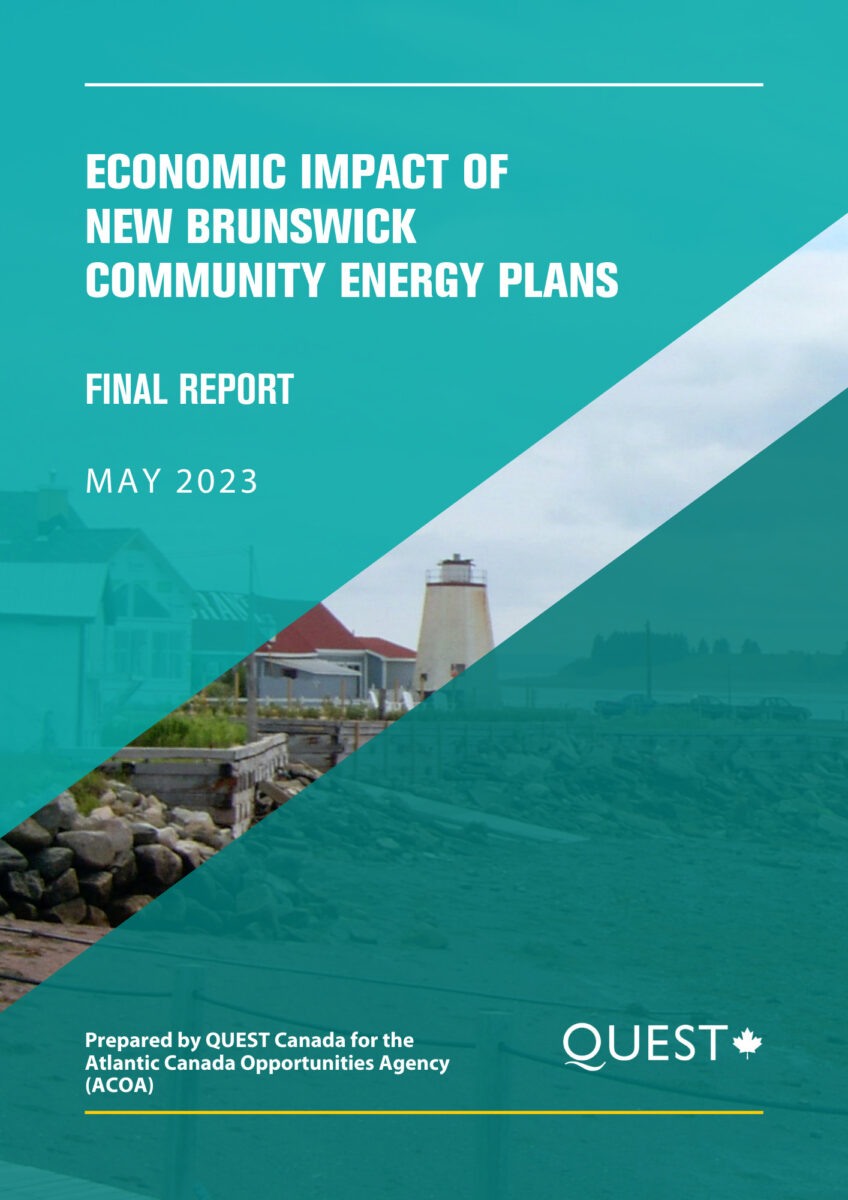A final report has been developed to help local governments and community borrowers overcome barriers to the low-carbon energy transition.


A final report has been developed to help local governments and community borrowers overcome barriers to the low-carbon energy transition.

Communities in Canada are increasingly developing local, low-carbon energy projects, but many face road-blocks with regards to financing. Simultaneously, Canadian investors are seeking low-carbon investments, but are challenged to find local opportunities at scale for investment. The Enabling Low Carbon Energy Projects for Investment (ELCEPI) research project aims to offer recommendations and solutions to close these financing gaps, while connecting the barriers and enablers for investment to larger socio-economic issues.

In 2021 the Atlantic Canada Opportunities Agency (ACOA) engaged QUEST Canada to review existing Community Energy Plans (CEPs, also known as Community Energy and Emissions Plans, Climate Action Plans, etc.) in the province of New Brunswick to determine the potential economic impact at the local and provincial level. QUEST Canada has extensively engaged with New Brunswick’s municipal governments, and their communities, for some time through its Smart Energy Communities Accelerator (SECA) program and has identified and secured collaboration with six communities to undertake an economic impact assessment: Quispamsis, Woodstock, Florenceville-Bristol, Perth-Andover, St. Stephen and Saint Andrews.
August 2020 Renewable Natural Gas (RNG) presents a unique opportunity not only to tackle GHG emissions and improve...
August 2020 Renewable Natural Gas (RNG) presents a unique opportunity not only to tackle GHG emissions and improve...
August 2020 Renewable Natural Gas (RNG) presents a unique opportunity not only to tackle GHG emissions and improve...
Discover the local economic benefits of implementing Community Energy Plans by downloading the workbook and 2 case studies from NB municipalities
August 2019 QUEST's pre-budget submission, which has been signed onto by Pollution Probe, focuses on the following...
March 2019 In Ontario, the Independent Electricity System Operator (IESO), local distribution companies (LDCs),...
March 2019 Energy markets in Canada are as varied as the country’s landscape. Transcending these differences is the...
The Roadmap starts with a vision for an energy information system that collects data in a comprehensive manner and...